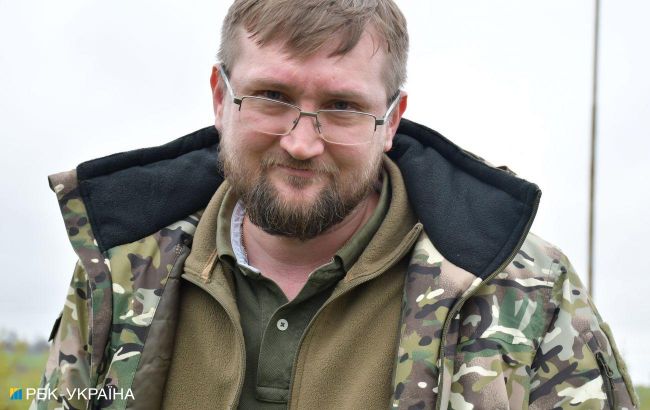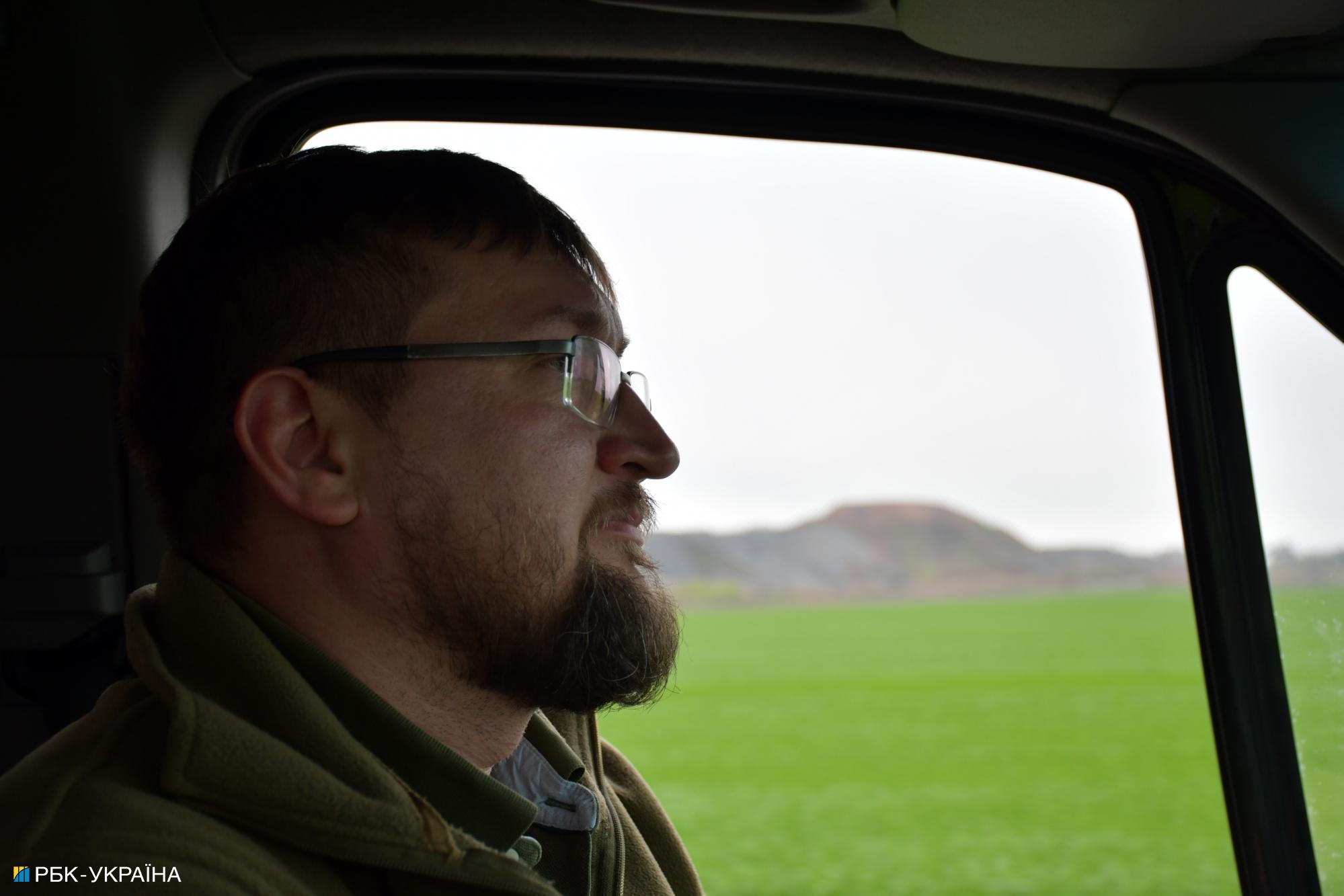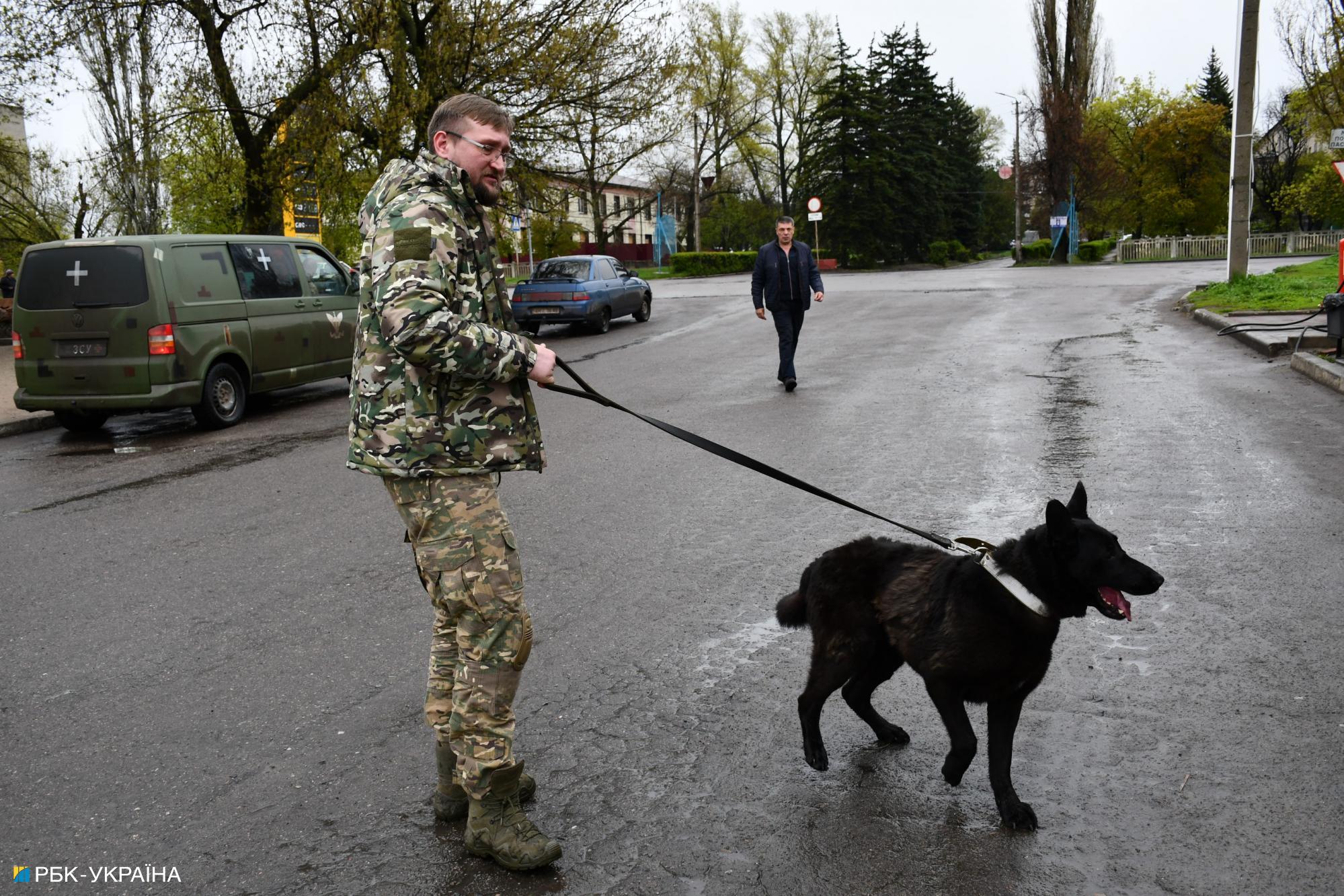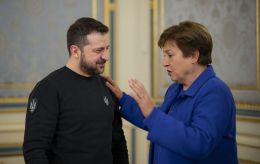Everyone is tired: war volunteer reality
 Volunteer Andriy Bobrovsky (Anastasia Rokytna, RBC-Ukraine)
Volunteer Andriy Bobrovsky (Anastasia Rokytna, RBC-Ukraine)
On the way back from Donbas, journalist and founder of the volunteer organization VATRA Anastasia Rokytna recorded a conversation with another volunteer, Andriy Bobrovsky, who has been helping with the evacuation of civilians and supplying the military at the frontlines since the first days of the large-scale invasion.
We are driving through the Donetsk region, avoiding potholes on the road. The rainy weather adds to the eastern military vibe. There is mud all around, buildings and military equipment destroyed by air raids. The car is driven by Andriy Bobrovsky, who was engaged in media analytics and was the head of the committee to combat illegal construction in Kyiv before the full-scale war, and here he is now, driving around the streets of the eastern region of Ukraine.
As soon as the full-scale war broke out, he started helping the army with logistics. He calls himself a "combatant," but he goes by "military volunteer" as it is more familiar for Ukrainian society. He spoke to RBC-Ukraine about the war, the two realities and volunteer burnout.
Military volunteering
February 24th. The first half of the day was spent trying to figure out where to go and what to do. I took my family to the Cherkasy region and came back to Kyiv around midnight. I remember huge kilometers of traffic caused by people who were trying to leave Kyiv. I in turn was trying to get to the capital.
From the very beginning, I helped form checkpoints and other structures. I contacted my friend Ihor Lutsenko and went to Lutizh. At that time, the 72nd Brigade was stationed there and met the Russian army which was trying to break through to the capital.
I was engaged in all kinds of supplies: I brought cars, ATVs, food, water and other things, as well as supplying aerial reconnaissance. I was a volunteer from the very beginning.
After the end of the Kyiv campaign, we went to the Kharkiv region. We went closer to the border with the Russian Federation. Then Ihor went to Lysychansk and Sievierodonetsk, and I joined my comrades near Bakhmut. Until the beginning of August, we were in the city that is now called a fortress (Bakhmut - ed.). Then we were transferred to Kurakhove, Vuhledar.
The combat conditions near Kyiv and Bakhmut
As for me, the most difficult campaign was the Kyiv one. Back then, I was just getting used to everything that had to do with a full-scale war. In Bakhmut, I was more adapted to combat conditions. Not so much in Vuhledar, as the conditions were extremely difficult.
At the end of March, I was getting a landing party to Irpin, and I was asked to take people from Irpin. The town was just being liberated, and civilians had to be taken from the other end of it, almost near Bucha. As I arrived at their homes and told them to evacuate, mines were whistling over my head. They were shooting from both sides. It was a true war.
Civilians asked how much time they had to get ready. I normally gave them no more than 5 minutes. Some said they wouldn’t go anywhere, but I managed to convince them in the end. We were walking down the street because I parked a little further to be able to leave quickly. Meanwhile mines were flying over us, knocking down tree branches. Unbelievable hostilities. I will never forget that day.
Other than Irpin, there was a story during the Kyiv cadence, when some artillery observers told the Russian soldiers where to shell and they bombed right next to where we were. But there was a grid over our position and the shrapnel simply did not pass through it on the way in.
In Bakhmut, we lived in the Zabakhmutka neighborhood, which was the first to be occupied. A Russian tank came from the direction of the garbage dump, drove up and stopped a few kilometers away from us, and just started shooting at us. There were spots where it hit within a radius of 200-300 meters from where we were. Then our tank came to shoot back at them. We were just listening to it all. It was scary, but I was not injured.
Volunteering in Kharkiv
My first evacuation of civilians was on March 1 from Kharkiv. I was evacuating the family of a soldier who stayed there to defend the city. It took two days to get from Kyiv to Kharkiv, then through Poltava, Kremenchuk, Uman and to Lutsk, and then straight back to Kyiv. I traveled almost 3000 kilometers without stopping or sleeping. It was on the day when the Kharkiv Regional State Administration was shelled.
I was approaching Kharkiv on an almost empty highway, with only caravans of cars coming towards me. I stopped at one of the gas stations, and there were huge lines of people forced to leave their hometown. I started asking what was the best way to get around Kharkiv, and they told me I was out of my mind and that I shouldn't go to that city. I was in the city center about an hour after the shelling of the Kharkiv Regional State Administration happened.
It was my first encounter with the consequences of the racist "liberation". I picked up the people and half an hour later missiles were hitting along our route. All I remember is the Kharkiv Tank School and something else.
Then we went to Poltava, which is only 150 kilometers from Kharkiv, and the situation was completely different, just as if there was no war at all, such a prominent contrast that it was hard to realize that such different worlds - peaceful and full-on war - existed so close to each other. Later on, there was a long process at checkpoints before Kremenchuk, then an hour of sleep near Oleksandriia, and then to new traffic jams near Uman.
We had to look for alternative routes. Our goal was to pass through the towns and get to the highway before the curfew, and I barely made it on time through the town of Skvyra. I don't remember the names of the people I was taking out. I remember there was a schoolgirl who was an ice skater and was supposed to be in the Olympic reserve, and I really hope they are doing well.
Evacuation of civilians from Chernihiv
Perhaps the most difficult evacuation was from Chernihiv, the day before the bridge was blown up. The last few kilometers of the road to Chernihiv were being shot at by Russians, so we had to drive through fields. At some point, there were only two cars ahead of me and no one behind me. Then suddenly (they were about a kilometer away from me) those cars in front turned around and drove back past me at a really high speed.
I stopped and wanted to ask what happened, and the driver of one of the cars just flew past me with his eyes wide open. I tried to hear if there was any shelling, heard nothing and just drove on. I still don't understand what happened, because I got there with no problem. I was bringing medicines to Chernihiv from Lutsk and Lviv at the request of my friends from the intelligence service for one of the medical units.
After unloading, I went to pick up people, and there ended up being more of them than planned. Moreover, neither of the two groups confirmed the evacuation. So I even had some people in the trunk. Some really wanted to take 3 liters of oil and blankets, but I said I would have to throw these things out into the street because people would not fit.
We went back along the "green" corridor, often bypassing traffic. When we arrived at our destination, one of the women said that they should have listened to me and taken even less stuff.
Volunteering after a year of full-time non-stop work
Previously, you could raise money for anything. Money for a spaceship - no problem. People were so active to donate. Volunteers were able to buy anything that was of big need. Now it is sometimes a struggle to even raise money for a Mavic drone. People are tired of donating money and everything else... What they don't realize is that the soldiers have no time to get tired, there is a horrendous war going on.
As for volunteer burnout, I think it happens as soon as you relax too much, when you are in a warm bath and in a warm environment. But when you're traveling through the fields or through demolished cities, and when you’re working, it keeps you put together. Of course, none of us are robots, we get tired, and we need to be distracted, we must take time to recharge and get back to doing our jobs again. But I never feel this burnout when I'm at the front.
Living "in two worlds"
There is a contrast between frontline cities and, for example, Kyiv. The difference is huge because the war in Kyiv Is over. Such contrast is very disconcerting. Civilians need to see what is happening at the frontlines and what the cost of victory looks like. They need to understand that vehicles and drones are consumables, they are always in need.
There is so much hate in society now, particularly on social media. And this hate is not even against our enemy, but aimed at our own people. It sometimes seems like we have already won and there is some kind of political competition going on.
I don't support these squabbles at all, except when they impede our victory, for instance, and when it comes to really high-profile issues, like corruption. Unfortunately, there are a lot of bureaucratic issues, in particular with regard to procurement. Sometimes it seems that these obstacles are deliberately created for our defeat. I think procedures now should be simplified as much as possible to ensure our victory.
The future of Ukraine
I want to see Ukraine as a Ukrainian-speaking country. This is my principled stand. We have to move away from this "What's the difference" way of thinking and become an entirely Ukrainian-speaking society._1.jpeg)
I would like to believe that these "compatriots" of ours who allow themselves to make money from corrupt schemes such as buying and reselling humanitarian aid will have enough and disappear from our country eventually. Forever. Our country must be free and independent.
I want Ukraine to secure its borders and grow economically to the level of a European country after the victory over Russia. I know we have everything to achieve this.
***
Anyone who wants to support the initiative of VATRA volunteers and help the military can give financially. All the details are below.
Bank details: Mono - 5375411506472781 (Anastasiia Rokytna)
Bank: https://send.monobank.ua/jar/2VA3WZvt1G
PayPal: a.rokytna@gmail.com
NGO Vatra UA173052990000026008015024247

